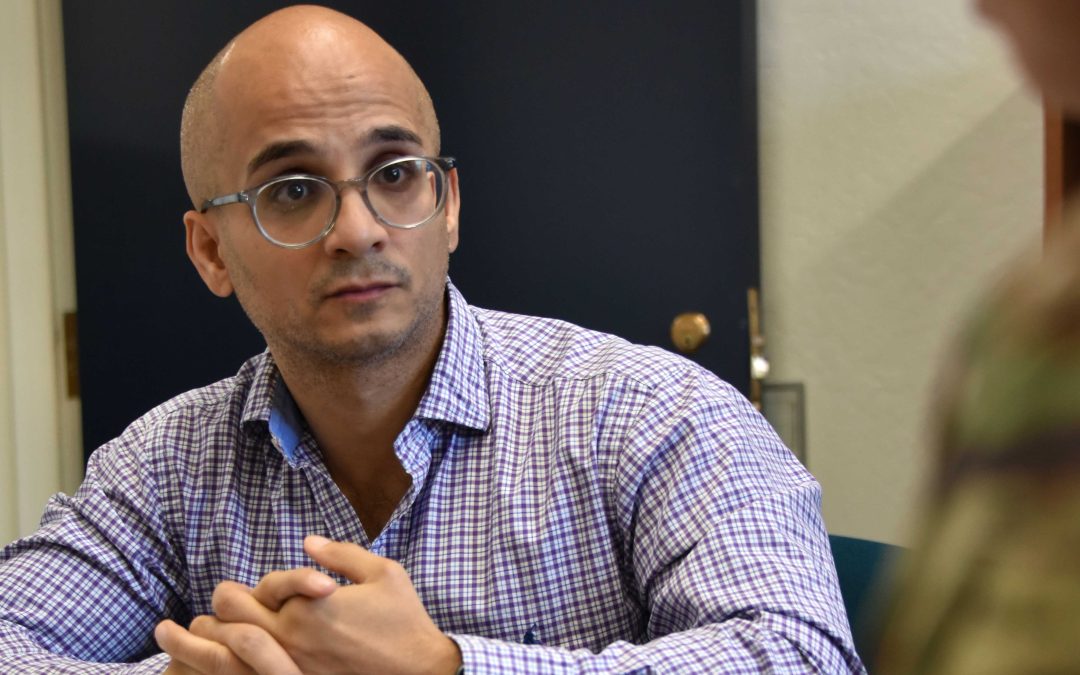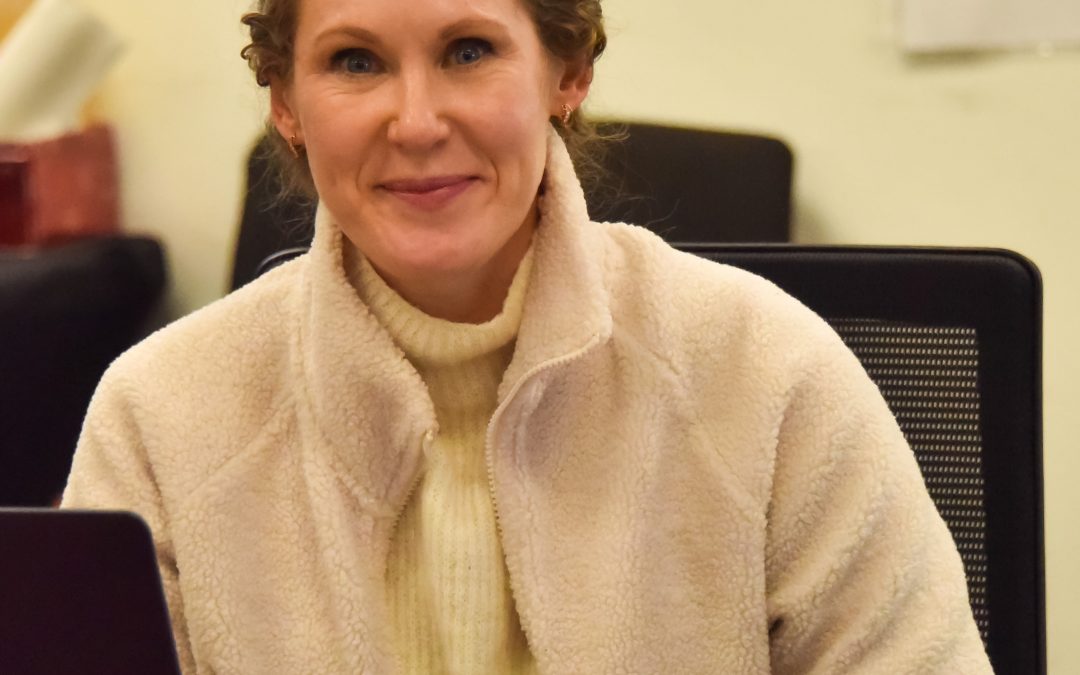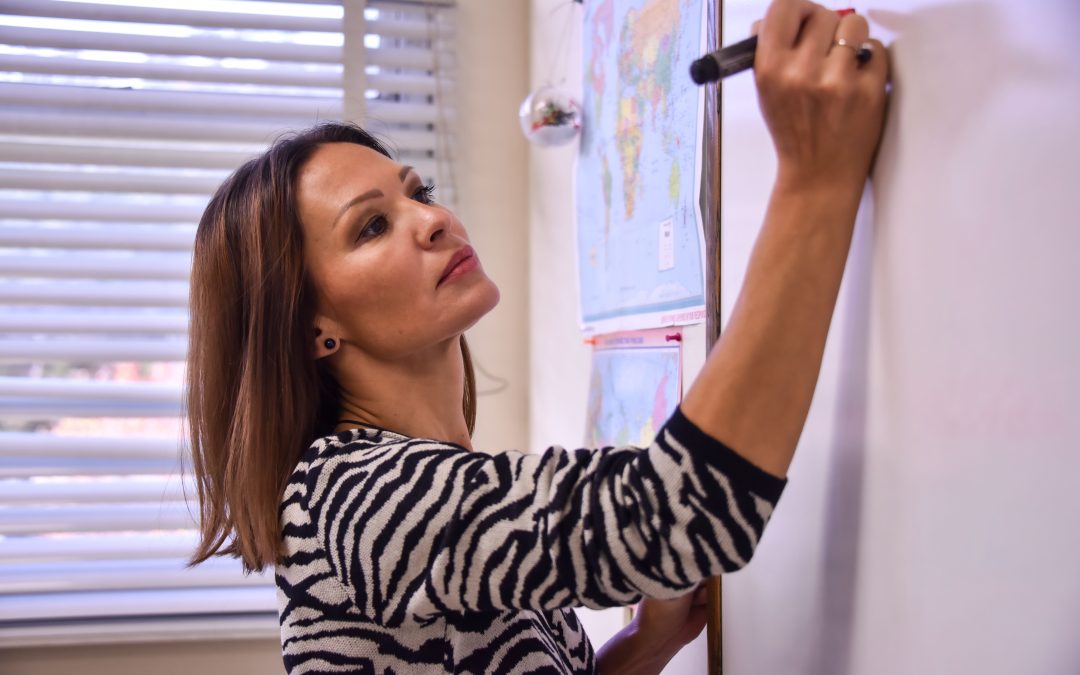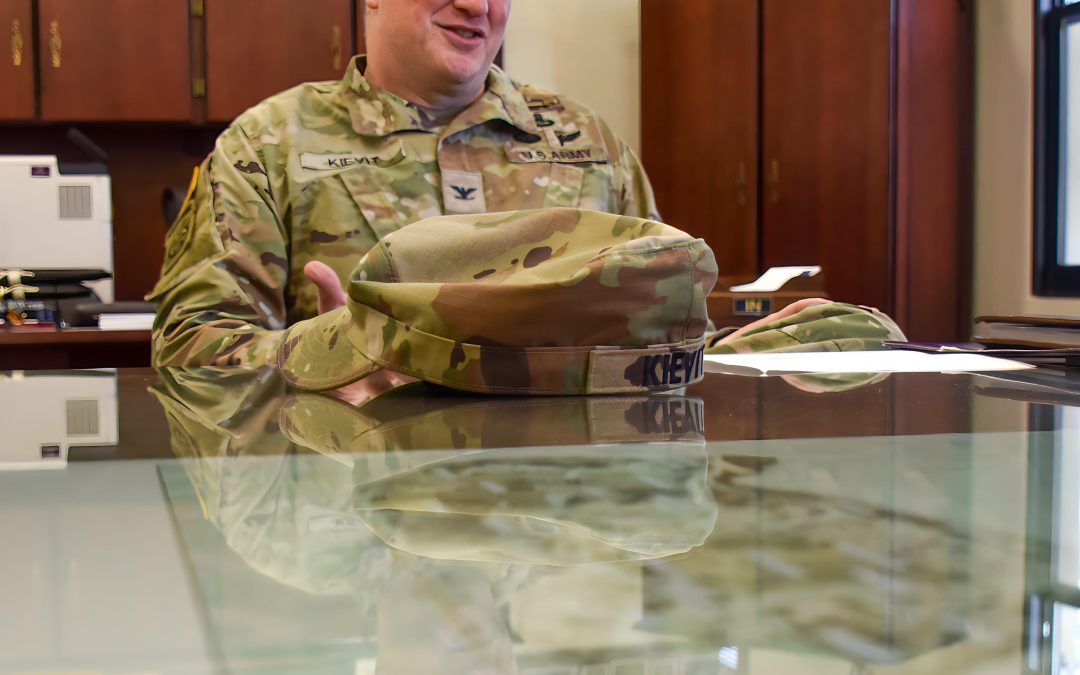By Patrick Bray
DLIFLC Public Affairs
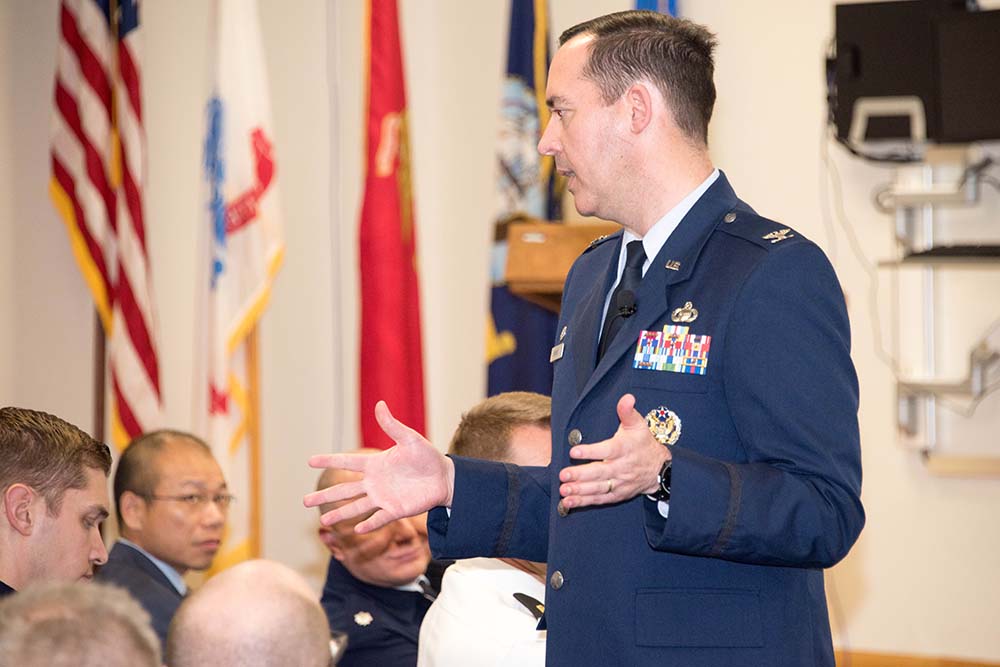
Col. Wiley Barnes, the assistant commandant of the Defense Language Institute Foreign Language Center and commander of the U.S. Air Force 517th Training Group, gave a talk titled “Leadership principles of a loyal heretic” at an institute leadership forum to staff and faculty Jan. 25. (U.S. Army photo by Patrick Bray/Released)
MONTEREY, Calif. – Col. Wiley Barnes, the assistant commandant of the Defense Language Institute Foreign Language Center and commander of the U.S. Air Force 517th Training Group, spoke at an institute leadership forum to staff and faculty Jan. 25.
Barnes titled his talk “Leadership principles of a loyal heretic” and made several book recommendations to support the subject of leadership.
“A loyal heretic is a person loyal to the Nation, his service and mission while challenging the status quo in a constructive way,” said Barnes, who uses the Webster Dictionary definition of heretic as “one who differs in opinion from an accepted belief or doctrine.”
Barnes did not coin the phrase himself, but attributes it to Lt. Gen. Paul K. Carlton, Jr., the 17th Surgeon General of the Air Force. Carlton had spoken to a class of officer candidates at the Officer Training School at Maxwell Air Force Base, Alabama, while Barnes was serving as an instructor there from 2002-2003.
A loyal heretic is a way of thinking, according to Barnes, who then challenged the staff and faculty to “not just do what you’re told, but be informed of the situation or mission and make positive change.” He said they must adhere to five leadership characteristics or principle and five disciplines to do so.
The leadership characteristics or principles are experience, education, natural talent or intellect, vision, and courage.
The disciplines are mutual respect for others, doing the right thing for the right reason, leading by example, continuously improving and adapting systems thinking.
Barnes offered a book recommendation with respect to the principle of vision.
“In the Opposable Mind by Roger Martin, he proposes that an opposable mind can take two separate and distinct ideas or approaches, find the best characteristics of those two for the situation or the mission and integrate those to create a third approach,” said Barnes.
Barnes then spoke about cultivating that vision at DLIFLC. It will require courage, which he more plainly described as accepting risk.
“Accepting risk is part of what we do. If we didn’t, we would never leave our house. There would be no risk in personal relationships or driving down the highway,” said Barnes.
“Life is fraught with peril,” continued Barnes, but he said “we have to embrace it and understand how to manage risk.”
For continuously improving, Barnes introduced the OODA loop, which refers to the decision cycle of observe, orient, decide and act, and then repeat the cycle.
“And that’s where the heresy comes in. People will get stuck, whether they realize it or not, in the way things have always been. That does not constitute a positive, innovative, adaptive or productive way of doing things,” said Barnes. Loyal heretics will keep the constant cycle going.
The OODA loop was developed by Col. John Boyd, who is considered the greatest U.S. fighter pilot in history, and Barnes recommended another book: Boyd: The Fighter Pilot Who Changed the Art of War by Robert Coram. Not only could Boyd fly fighter jets but he knew the inner workings of aircraft and was constantly improving them. As a pilot, his theories of lightweight aircraft led to the F-16 fighter jet still used today.
“As we look at getting to the goals we set for ourselves, such as getting to 2+/2+/2, it will also require systems thinking,” said Barnes, speaking of the fifth of the five disciplines he previously mentioned. “Everything we do is a system of systems, a process interlinked with processes.”
Barnes then recommended reading the Fifth Discipline: The Art and Practice of the Learning Organization by Peter Senge, which focuses on using systems thinking to develop learning organizations.
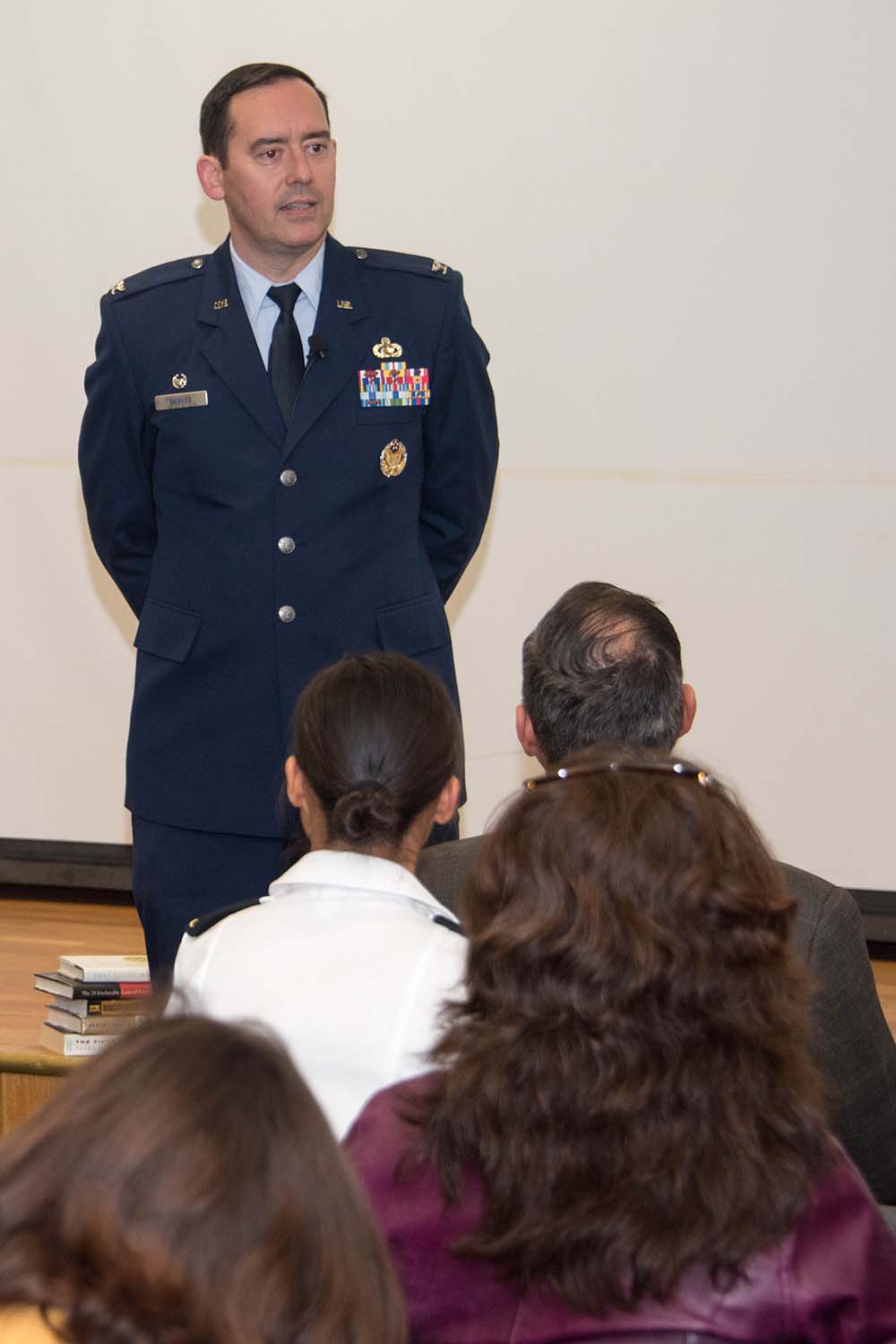
Col. Wiley Barnes, the assistant commandant of the Defense Language Institute Foreign Language Center and commander of the U.S. Air Force 517th Training Group, gave a talk titled “Leadership principles of a loyal heretic” at an institute leadership forum to staff and faculty Jan. 25. (U.S. Army photo by Patrick Bray/Released)
The final book recommendation focuses on examining the decision making process. Essence of Decision: Explaining the Cuban Missile Crisis by Graham T. Allison provides a case study of the rationale behind government decision making during one of the most dangerous events in U.S. history and how this decision-making process can be applied in the future.
“The last characteristic is personal courage reinforced by your conviction and adhering to those values of your oath of office,” said Barnes, who added that “you can have courage because you’ve developed yourself through education and experience.”
“It is not easy sometimes being a loyal heretic,” Barnes said in summary. The journey to leadership has to begin on day one when staff and faculty as federal servants take their oath of office and standards and expectations are established, according to Barnes. Therefore, as a learning organization, DLIFLC has established the Center for Leadership Development to grow its leadership capacity. It develops current and future leaders on their journey to leadership who are committed to promoting a highly engaged and positive workforce.
Barnes has a Master of Arts in Organizational Management from George Washington University in Washington, D.C. He also graduated numerous Air Force training schools, the Joint Forces Staff College in Norfolk, Virginia, and, from July 2014 to June 2015, he served as a National Defense Fellow at the Atlantic Council in Washington, D.C., a think tank that encourages cooperation between North America and Europe.
DLIFLC provides resident instruction in 17 languages at the Presidio of Monterey, California, with the capacity to instruct another 65 languages in Washington, D.C. The Institute has graduated more than 220,000 linguists since 1941.
In addition, multiple language training detachments exists at sites in the U.S., Europe, Hawaii and Korea, spanning all the U.S. geographic combatant commands in support of the total force.

